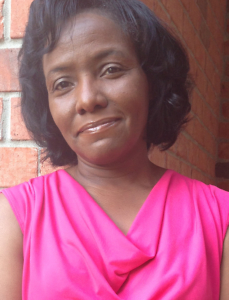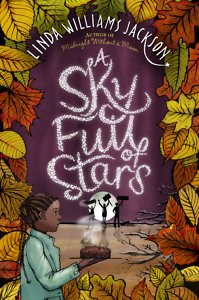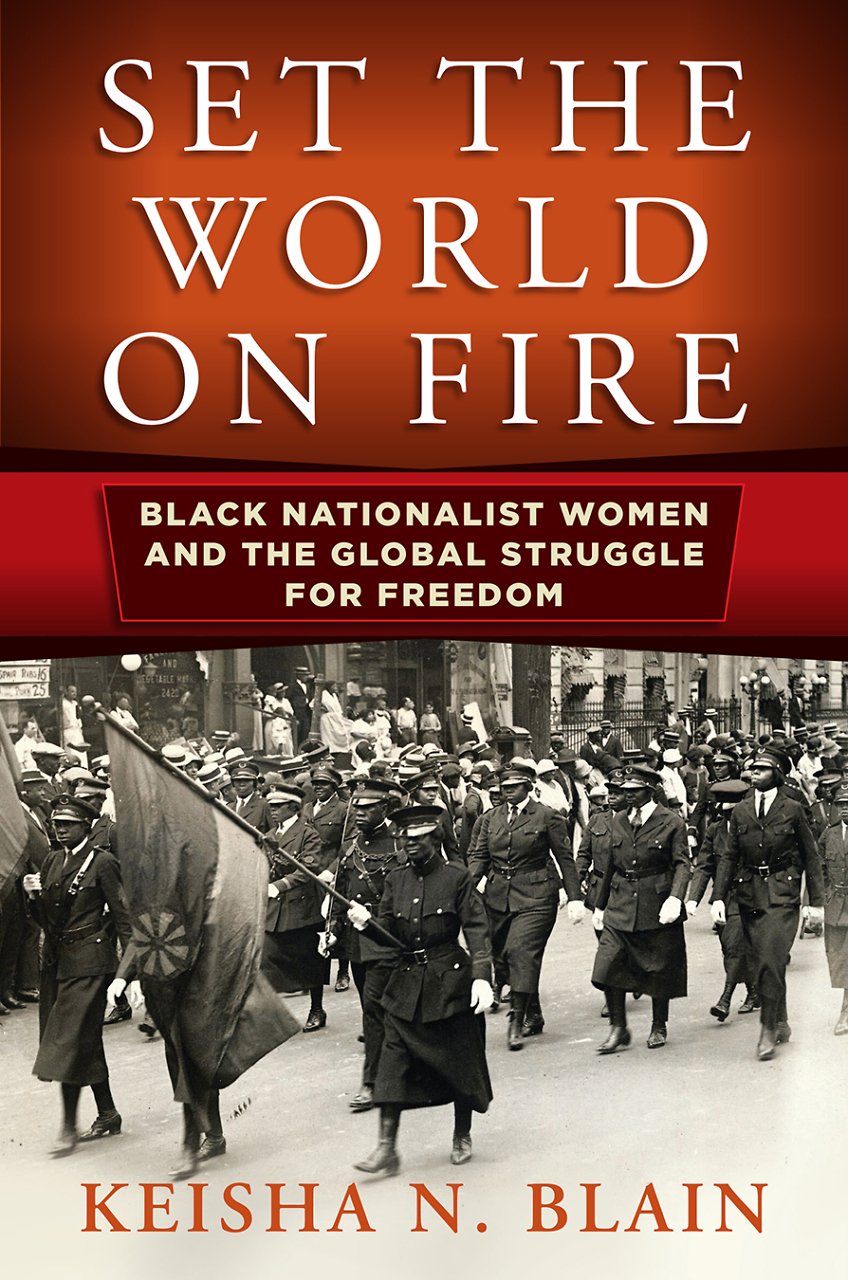This Little Light of Mine
Linda Williams Jackson talks with Chapter 16 about race, class, and courage
Linda Williams Jackson’s new novel, A Sky Full of Stars, comes just a year after the first in the series––Midnight Without a Moon––but not a moment too soon. The middle-grade historical novel picks up right where Moon left off: Emmett Till’s murderers have just been acquitted by an all-white jury, and the book’s hero, Rose Lee Carter, has turned down her aunt’s offer to leave the Mississippi Delta for a home in the North. Instead, she’ll stay in the South and fight for an equitable world.
 Despite her resolve and the confidence of her new christening––her aunt has encouraged her to use the grown-up moniker “Rosa” instead of “Rose”––Rosa can’t deny the cold truths of Jim Crow or disputes within the resistance. Even in her own classroom, Rosa’s best friend, Hallelujah Jenkins, debates peaceful protest with Shorty, a new character who favors violent dissent. Rosa is not one to accept easy answers, and Williams allows her young protagonist to explore the philosophical and practical sides of the issue.
Despite her resolve and the confidence of her new christening––her aunt has encouraged her to use the grown-up moniker “Rosa” instead of “Rose”––Rosa can’t deny the cold truths of Jim Crow or disputes within the resistance. Even in her own classroom, Rosa’s best friend, Hallelujah Jenkins, debates peaceful protest with Shorty, a new character who favors violent dissent. Rosa is not one to accept easy answers, and Williams allows her young protagonist to explore the philosophical and practical sides of the issue.
She lets her protagonist get furious at the world, and Rosa’s unvarnished anger is refreshing, though Rosa also has experiences that ring with optimism, as when she visits the prosperous, all-black city of Mound Bayou. Still, A Sky Full of Stars shouldn’t be just categorized as a book for middle-grade readers who are interested in civil rights. It’s a book for anyone who has ever been afraid and acted anyway.
Linda Williams Jackson recently answered questions from Chapter 16 by email.
Chapter 16: A Sky Full of Stars picks up right where Midnight Without a Moon left off, and Rose (now called by her new name, Rosa) has matured. When did you know you weren’t finished with this character and that you’d be writing a sequel?
Linda Williams Jackson: When I initially began writing Rosa’s story, I planned to give readers a glimpse of her life from July 1955 through April 1956. But as I dove into the story, the first part of it—July through October—was enough to fill an entire book. At that point I wasn’t sure there would be a sequel (or even a book for that matter). After I began speaking with editors who were interested in publishing the book, I mentioned the idea of a sequel. Elizabeth Bewley, who became my editor, was completely on board. Hence the sequel.
 Chapter 16: The novel opens with Rosa eavesdropping on a “Bible study” group of white women who are discussing race relations: the Emmett Till trial, the “integration nonsense” in Arkansas schools, and their theory that trouble-making Northern blacks are waging another Civil War on the South. Why did you decide to set the story’s groundwork with this examination of whiteness?
Chapter 16: The novel opens with Rosa eavesdropping on a “Bible study” group of white women who are discussing race relations: the Emmett Till trial, the “integration nonsense” in Arkansas schools, and their theory that trouble-making Northern blacks are waging another Civil War on the South. Why did you decide to set the story’s groundwork with this examination of whiteness?
Jackson: While doing research, I stumbled upon an interesting article about how Hoxie, Arkansas, had willingly integrated their schools without government intervention. Even though Hoxie is small, their decision caused a major uproar with White Citizens’ Council groups across the entire South. When I read the story, I knew that I wanted to make this my entry into Rosa’s story. I knew I wanted to enter the story from the standpoint of Mrs. Robinson and her friends essentially saying, “What’s ours is ours, and we shouldn’t be forced to share it with people we used to own as property.”
Chapter 16: I love how you show Rosa wrestling with weighty philosophical concepts. Why do you trust that middle-grade readers will rise to this challenge?
Jackson: Kids are so much smarter than some adults give them credit for. I always try to listen to and value my own children’s point of view, as they are often wrestling with weighty philosophical concepts themselves. Children often ponder weighty issues, which is why so many middle-grade novels focus on them.
Chapter 16: In A Sky Full of Stars, Ma Pearl takes a bit of a backseat, but she’s still one of my favorite characters because we can see through her cruelty into her fear and her desire to protect her family. What are the challenges of creating a sympathetic antagonist?
Jackson: Thank you! I’m so glad that you are able to read between the lines and pick up on the scars behind Ma Pearl’s personality. The challenge behind creating a sympathetic antagonist is the ability to weave in hints of their scars without flat out saying, “Ma Pearl is so mean because she’s afraid,” or “Ma Pearl is so angry because she can’t protect her family.” It’s that old adage of showing versus telling. I let the characters have their way with their words and actions; then I trust the reader to choose to connect with them or not.
Chapter 16: Rosa’s beloved best friend shows some unfamiliar colors when he “classes himself” above Rosa’s less refined cousin. You spend a good chunk of the book fleshing out that classism in Stillwater’s black community. Why?
Jackson: I wove this thread into the novel for the same reason that I wove colorism into the first novel: colorism and classism exist in the black community (and other communities), and they are issues that we need to face about ourselves.
Chapter 16: I love how Miss Bertha supports Aunt Ruthie by helping her open a business. Even mean old Cousin Queen has softened toward Rosa since the first book. Is there a message here for girls about helping each other out?
Jackson: I didn’t purposely intend to send a message about girls helping each other out, but more of people helping people (each one, reach one) as a way of helping an entire community do better. But I do like the idea that this is a girl-power thing because not only does Miss Bertha help Aunt Ruthie, and Queen soften toward Rose, but Miss Bertha helps Rose, Rose helps Aunt Ruthie, Joe Ann encourages Rose, and Rose helps Queen. So, yes, there is definitely an unintentional “girls helping each other out” message there. Thank you for pointing this out!
Chapter 16: Will Rosa learn about Mississippi hero Medgar Evers in the third book in this series?
Jackson: Oh, good thought! I don’t know the answer to that question yet, but it’s definitely something to consider!

Erica Ciccarone is an independent writer living in Nashville. She holds an M.F.A. from the New School and contributes regularly to several print and online publications and to Nashville Public Radio. .





